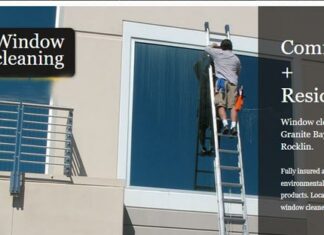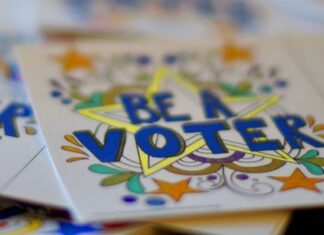In 1994, a doctor diagnosed John Pare (pronouced pah-ray) with cone-rod degeneration, an eye disease involving retina degeneration similar to retinitis pigmentosa. The Univ. of Florida graduate learned his eyesight would further deteriorate. There was no cure.
‘And today my vision is 20/400 and I’m legally blind,’ said 47-year-old Pare, now director of public relations for the Baltimore-based National Federation of the Blind.
Pare believes 2006 was an historic year for blind Americans. ‘The good news this year was that hundreds of thousands of blind and visually impaired Americans voted in an election privately and independently for the first time,’ he said, referring to the fruits of the Help America Vote Act of 2002, which required every U.S. polling place to have an accessible voting machine. This year was the national roll-out.
‘With the advent of electronic voting machines, it was easy to create an accessible voting machine, particularly one relying on audio,’ said Pare. ‘A blind person at any U.S. polling place now can use earphones and a hand-held telephone keypad to vote. You proceed through the voting process as a sighted person would, except you’re listening (to an audio prompt) and pushing keypad buttons.’
The National Federation of the Blind website claims 1.3 million Americans are legally blind, with perhaps one million of them of voting age. In past elections, blind Americans have had to bring at least one other person into the booth with them, which meant their vote was never secret. If not able to bring a friend, they were forced to tell their ‘secret’ vote to a poll worker, and also to Republican and Democratic poll judges. Four people could be in the voting booth.
But not everything went off without a hitch this year. ‘I voted at a precinct in Baltimore near the National Federation of the Blind,’ said Pare. ‘I was first in line to vote, walking up with my white cane. Even though it was pretty clear I was blind, the poll worker didn’t offer me an audio ballot. I had to ask for one.’
Why is being able to vote independently and privately important? One reason: Pare cited numerous examples of poll workers trying to influence blind Americans in the voting booth.
‘Now we can vote as Americans with full access to the democratic process,’ he said.
Editor’s Note: Help America Vote Act passed the Senate 92-2.
Opposed only by two New York Senators: Clinton and Schumer
(21+ years strong)
Welcome to the brighter side!
Get in front of local customers! 24/7 (365)





















